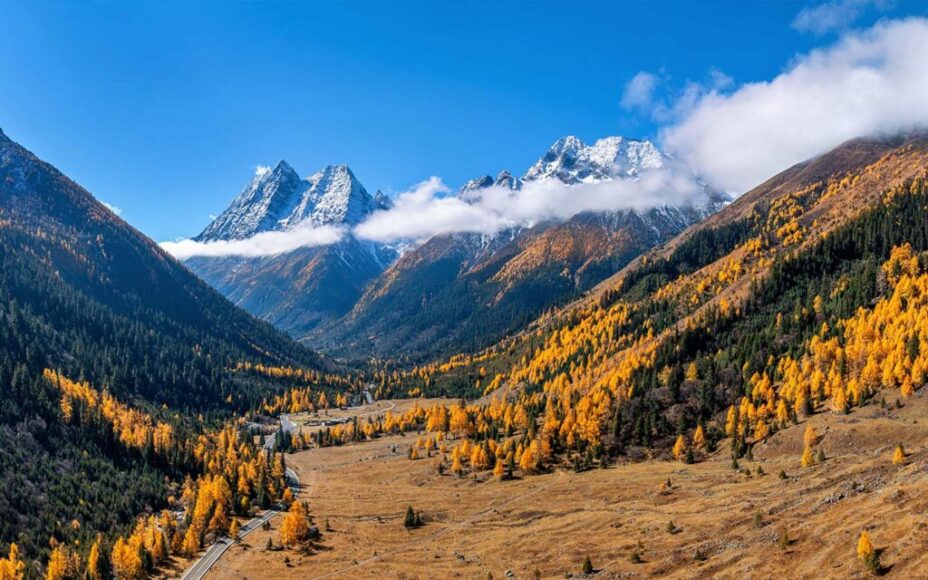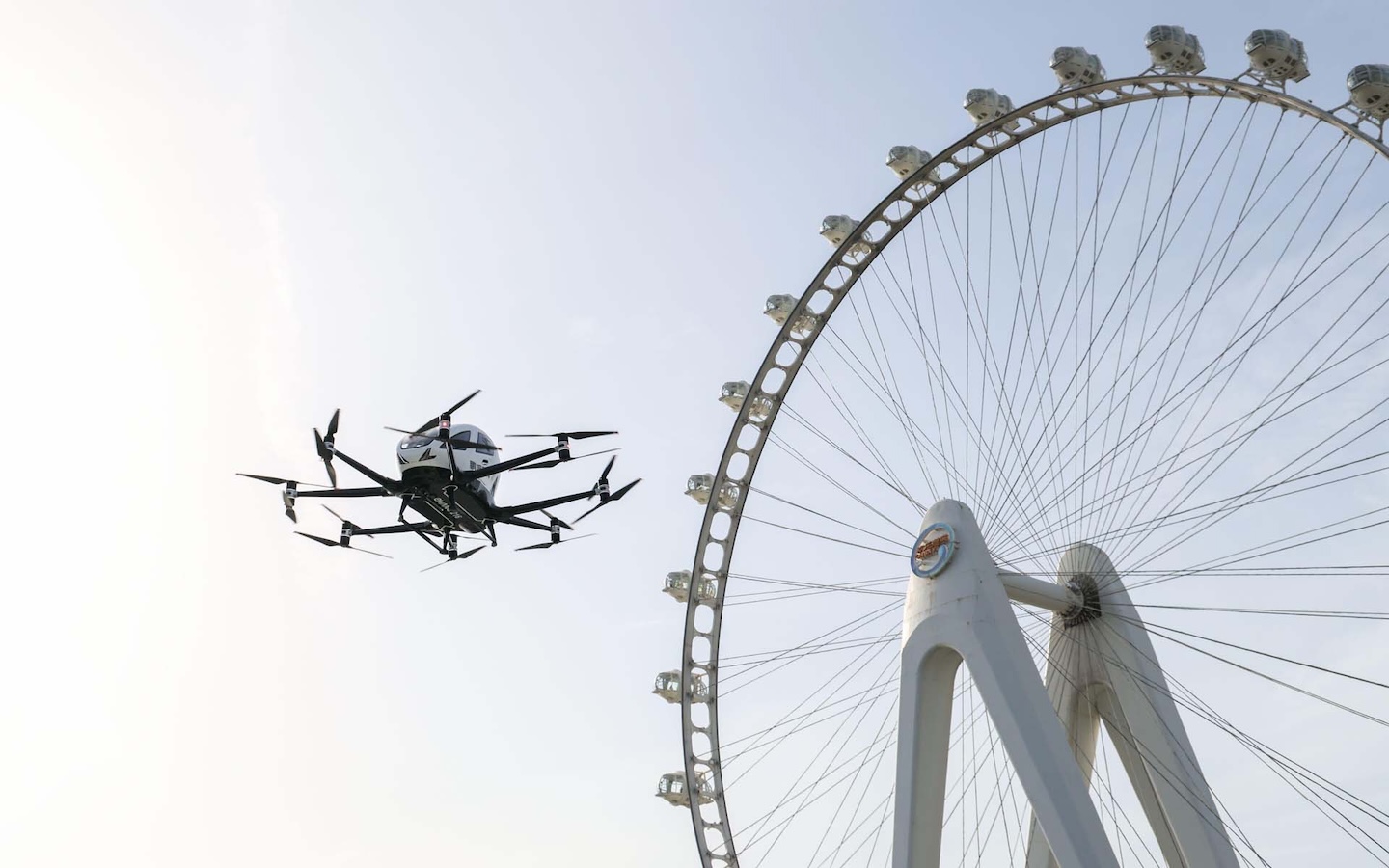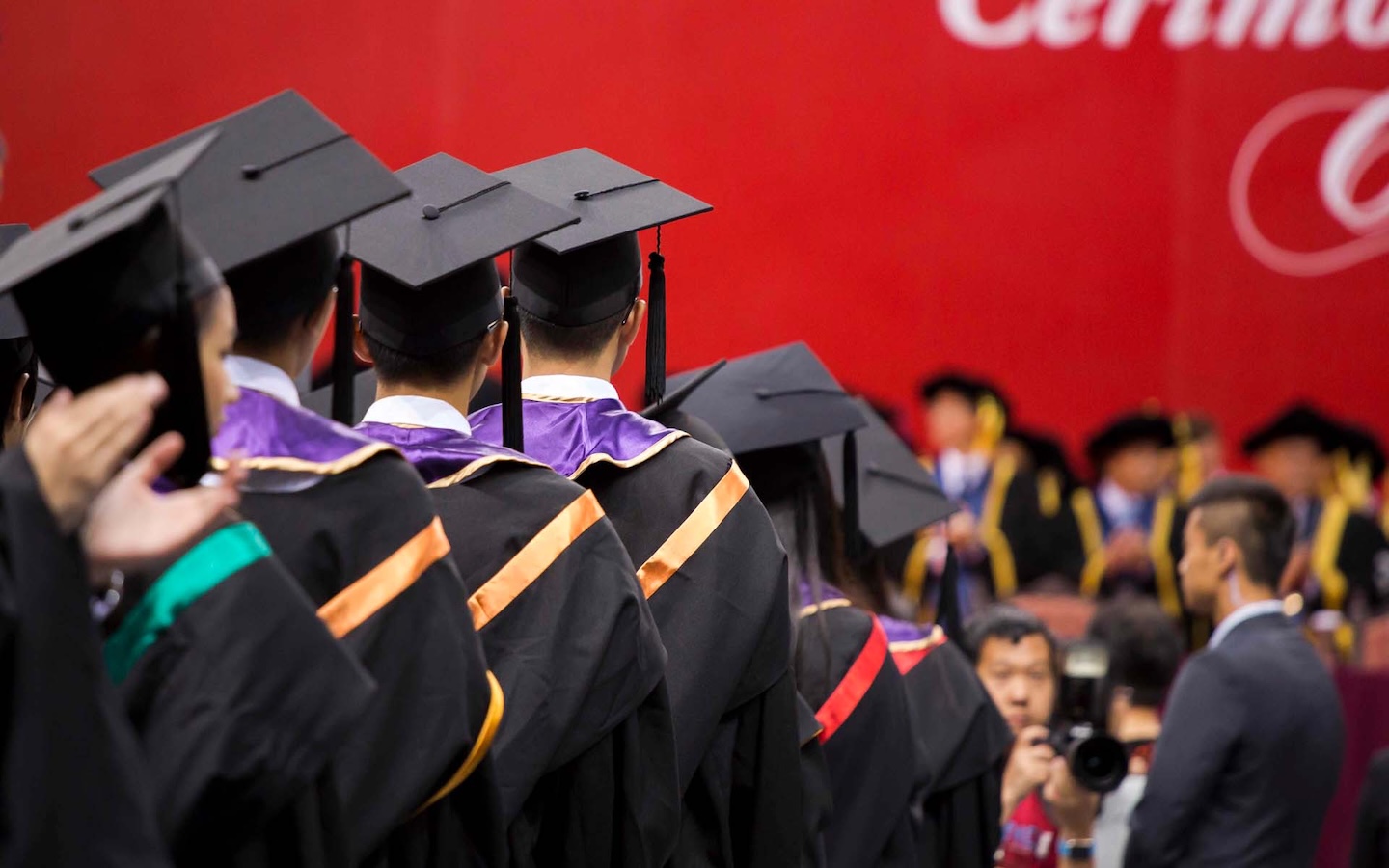It’s been nearly a year since the Central Government announced that non-Chinese permanent residents of Macao would be eligible for a new kind of multi-entry travel permit allowing visits of up to 90 days to the Chinese mainland – an initiative met with great excitement by the expat community. Previously, only residents with Chinese nationality enjoyed seamless journeys across the boundary line. When applications opened on 10 July 2024, close to 20,000 Macao residents were eligible for a permit, alongside their counterparts in Hong Kong.
Speaking at the time, Macao’s then-chief executive said the new system would promote people-to-people exchanges, accelerate the Special Administrative Region (SAR)’s national integration and support its drive to attract overseas talent. It would also play a role in the Central Government’s efforts to encourage international tourism.
China’s broader reopening to the world began in earnest in December 2023, when mainland authorities expanded visa-free entry to citizens of France, Germany, Italy, the Netherlands, Spain and Malaysia for tourism and business. By the end of 2024, dozens more countries had been added to the list, including Australia in July, Portugal in October, and Japan in November. These developments give many of Macao’s non-permanent residents easier access to the mainland as well.
A confluence of other measures have helped spur the northbound flow, which is largely driven by the SAR’s Chinese residents. From Macao-registered cars being allowed to enter neighbouring Guangdong Province to a light rail linking Macao with the mainland island of Hengqin, getting to the mainland has never been easier. Crossings have also become more streamlined thanks to new ‘document free’ channels at the Gongbei checkpoint with Zhuhai, which use biometric information to process eligible residents – including foreigners with a valid Mainland Travel Permit.
While many Macao-dwellers head to neighbouring Zhuhai to shop and dine out, some are venturing further afield. For a lot of foreigners living in Macao, the most densely populated territory on Earth, exploring the rest of China is a heady prospect. It is right next door, serviced by high-speed trains and a robust domestic flight network, but has until recently been something of an administrative challenge to reach. While the country boasts ancient towns and ultra-modern cities, more outdoorsy travellers are drawn to its karst peaks, whispering bamboo forests and surreal terraced hillsides. They seek wide open spaces and beautiful nature: vistas found beyond their urban home.
Macao magazine checked in with two of the city’s long-term foreign residents – Sara Santos Silva from Portugal and the Frenchman Guillaume Leclerc – to better understand the possibilities offered by this golden era of domestic travel. Interviews have been edited for length and clarity.
SARA SANTOS SILVA, WRITER

Sara Santos Silva is a mother-of-two who hails from Portugal. She has been permanently based in Macao since 2015 and works as a journalist for a local media outlet (the 37-year-old is also a contributing writer to this magazine). Santos Silva is fascinated by all the mainland has to offer, and can’t wait to explore more of it with her kids, currently aged five and nine.
There was quite a reaction when China announced the new travel permit for non-Chinese residents of Macao. What was your experience?
I remember it clearly! Macao-based Portuguese nationals like me had been waiting for some time. It felt like everyone was sharing the news, everyone was very excited about travelling more in the mainland. It was a real game changer for those of us who have made Macao our home but don’t hold Chinese citizenship. Before this, traveling to the mainland involved applying for visas, which was time-consuming and expensive, especially when traveling as a family. But we still did it a few times; it was always worth it.
What does being able to travel freely between Macao and the mainland mean to you?
When you live in Macao, your whole life happens within a very small land mass, right? It can feel like you keep bumping into the same people, going to the same places … the city can feel rather small. Having this ability to go visit the rest of the country is a fantastic opportunity to switch things up.
Speaking as a mum, it’s also a chance to show my kids something new and broaden their horizons! They’re both learning Chinese here in Macao and I love that travelling to the mainland can put them even more in contact with the language.
Tell us about your first trip to the mainland after receiving your travel permit.
I took the kids to Foshan [in Guangdong Province] for a camping trip with friends. I have really great memories from camping trips with my father in Portugal, so I’ve always wanted to give my children these kinds of experiences. As Macao is so urban, camping here is not really an option. The mainland, on the other hand, is known for its vast and stunning natural landscapes. The possibility of spending more time in them is something I really appreciate.
Our campsite in Foshan was next to a river with lots of greenery and not crowded at all. We had space; the kids played football. We barbecued and we even saw stars. For my kids, especially, it was all just amazing.
What’s been your favourite mainland travel memory?
Probably visiting Yangshuo County, part of Guilin [in Guangxi Zhuang Autonomous Region] during Chinese New Year back in 2015. We stayed at a very nice boutique hotel. It wasn’t luxurious, just nice and cosy, and we were treated like family. Particularly by the security guard, a gentleman in his 60s or 70s.
I remember getting back from a day trip and the weather had been rainy. This gentleman noticed that my boots and socks were all wet, and he offered to dry them by the fireplace. I was so grateful, and ended up sitting next to him as he held my socks up next to the fire – something he insisted on doing! Such a nice random act of kindness.
What’s it like traveling with children in China?
Travelling with kids can be pretty daunting anywhere, but it’s actually easier in China than in other places I’ve been to. That’s because Chinese people love children. We went to Beijing when my son, Francisco, was just three months old and I remember this sea of people surrounding us in the Temple of Heaven. They were just so excited to see this little blonde baby. It was very endearing.
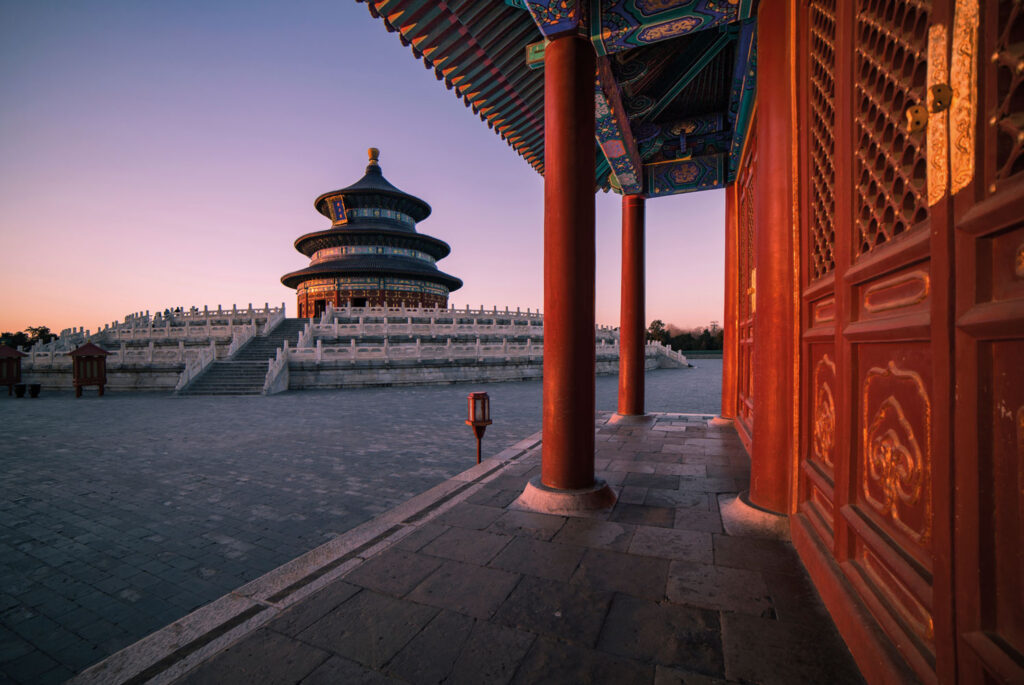
How does the mainland compare with other destinations in the region for you?
Well, Asia is incredible in general. But China does have this very long history that’s created some truly fascinating culture. And amazing gastronomy – I mean, there are so many different cuisines within the country. And then there are the beautiful, diverse landscapes. This all means that the range of experiences on offer is just so rich. China is a country, but we can almost think of it as a continent in its own right.
Do you think the new policies will draw prospective newcomers to Macao?
I figure that for potential expats, people who are considering moving to Macao, easy access to the mainland will definitely be part of the appeal. People are super curious about this country, which is in part fueled by the impressive progress it has seen over the past few decades. I think many already recognise it as a worthwhile destination and would jump at the opportunity to spend more time here. These days, living in Macao makes that easier.
GUILLAUME LECLERC, SOFTWARE DEVELOPER
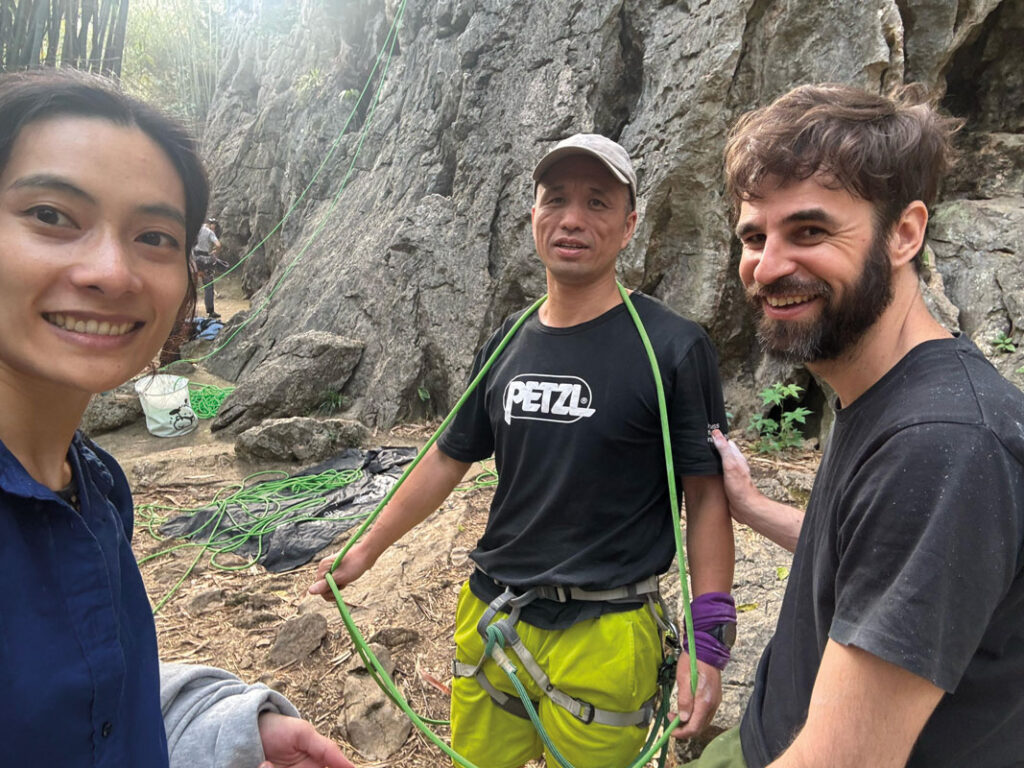
Born in France in the early 1980s, Guillaume Leclerc first visited Macao in 2006 before travelling around Southeast Asia. The experience made him fall in love with the region, and he relocated to Macao for a job at one of the city’s universities in 2007. Today, the 43-year-old is a software developer and permanent resident of the SAR who travels to the mainland frequently, often for rock climbing.
What first brought you to Macao, and how do your travels in the mainland connect to that?
I came to Macao because I love learning about cultures that are different from my own. I wanted to learn a new language and discover how people think and behave in ways that aren’t like what I know. Macao is its own cultural experience, a mixture of Chinese and European influences. It feels like an international city. The mainland, meanwhile, offers serious Chinese cultural immersion – which is something I really enjoy. But I also go there for its green spaces. Macao can feel quite packed: it’s hard to find a coffee place where you’re looking out into nature. Venture into Zhuhai, and suddenly that’s easy.
What stands out to you when travelling around different parts of China?
There’s so much variety. Food is just one example. In Guangdong, you’re going to eat a lot of steamed fish. Then in Sichuan, everything is cooked with tongue-numbing spices. Even the people look different depending on where you are – height and skin tone vary a lot. In terms of scenery, the diversity is massive. But every place I’ve been has been beautiful in its own way.
How do you find communicating with local people?
For me, it’s always more interesting to sit outside a local restaurant on plastic chairs and strike up a conversation with someone than it is to visit a museum. So, speaking with locals has been a big motivation to learn Mandarin. I actually studied Cantonese in Macao first, then took private Mandarin classes for a year in Hengqin.
Being able to talk with people directly just opens everything up. Compared to places like Thailand, Vietnam or Malaysia, English is definitely more limited in China. Southeast Asian countries have relied on international tourism for a long time, so they’ve become adept at learning languages. They’ve also had more outside influence in their cultures throughout history. But China is such a huge country that most of its tourism market is domestic. This is starting to change, though, and some of the apps you use day-to-day there are even introducing English-language interfaces.
Do you have a favourite destination?
Yangshuo. I keep going back. I love being in nature, swimming in rivers, rock climbing… Yangshuo is perfect for people who love the outdoors. It’s like Ha Long Bay in Vietnam, but inland. You’re driving along and suddenly these tall, narrow mountains rise out of nowhere. I often take my rock climbing gear and spend days exploring the incredible landscape, but you can rent equipment, too. And hiring a local guide is also a good idea.
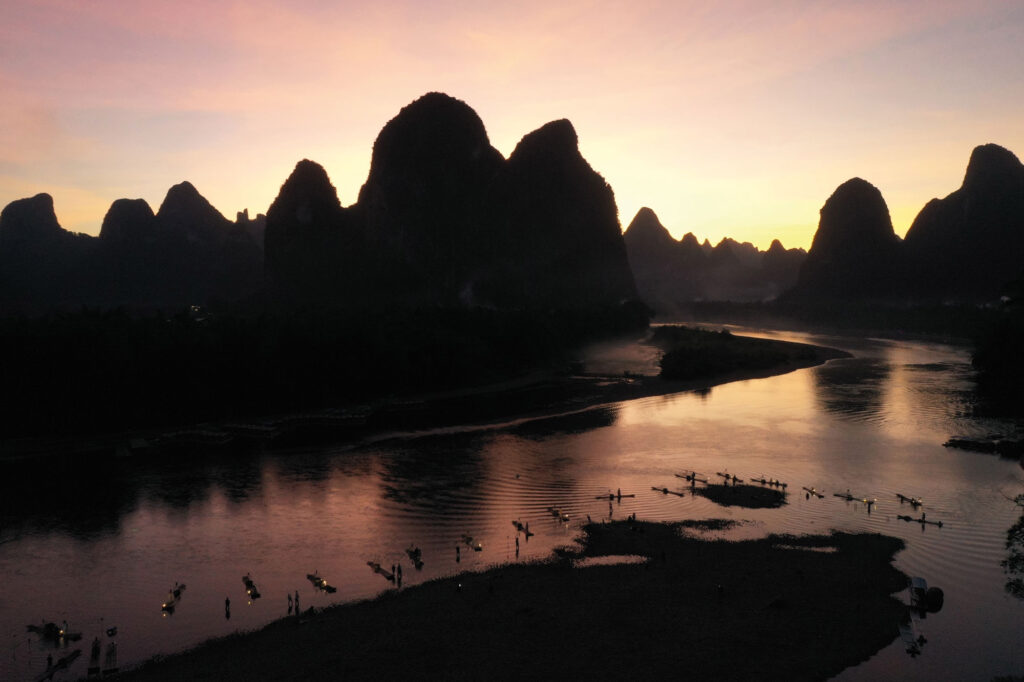
What might surprise first-time visitors to the mainland?
I’d say how – language barriers aside – everything there is so convenient. Like, I’m from France. When you buy a train ticket there, there’s a good chance the train won’t leave on time. In China, transportation is super efficient. Things just work.
A lot of Europeans still have an image of China from 50 years ago. But it’s incredibly modern and actually more advanced than most places in Europe. It’s almost unbelievable. Lost in some remote area? You can just open an app and order a rideshare like DiDi to pick you up. China is so entrepreneurial. If you need something, pretty much wherever you are, you’re gonna find it. Like a power bank on top of a mountain, or a cooler of cold water you can open with a QR code.
